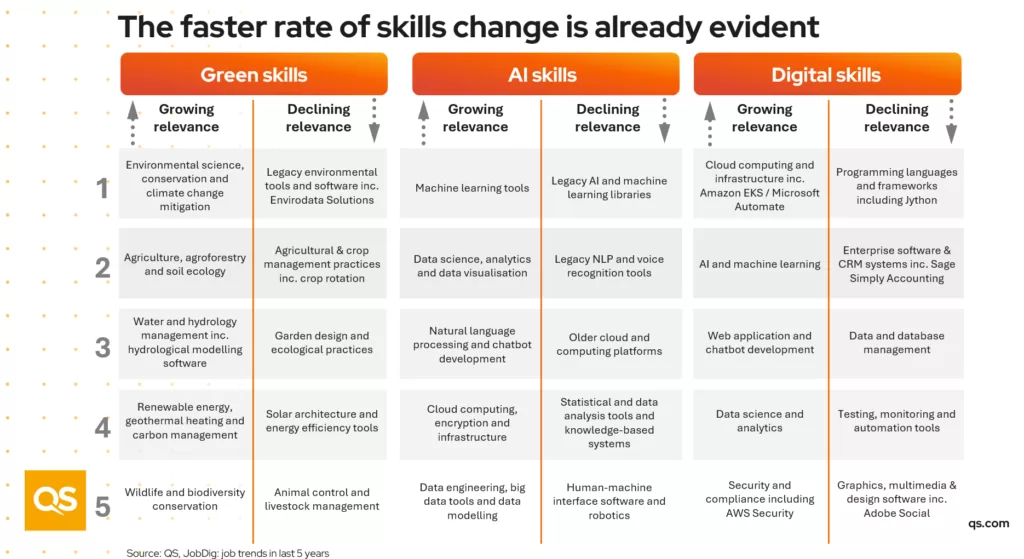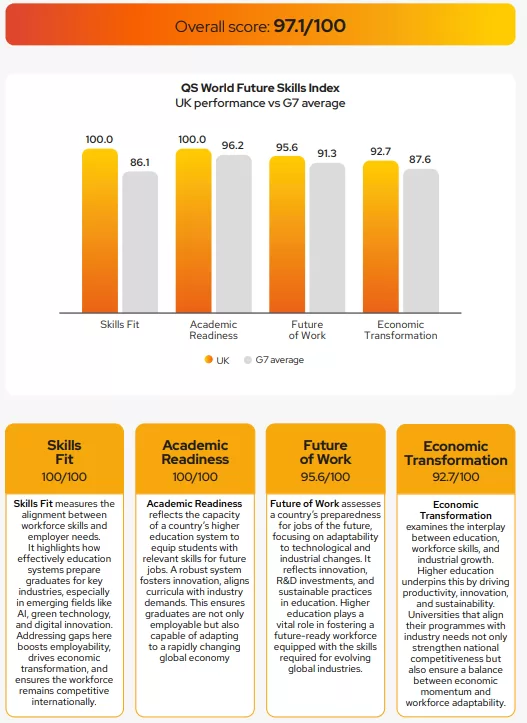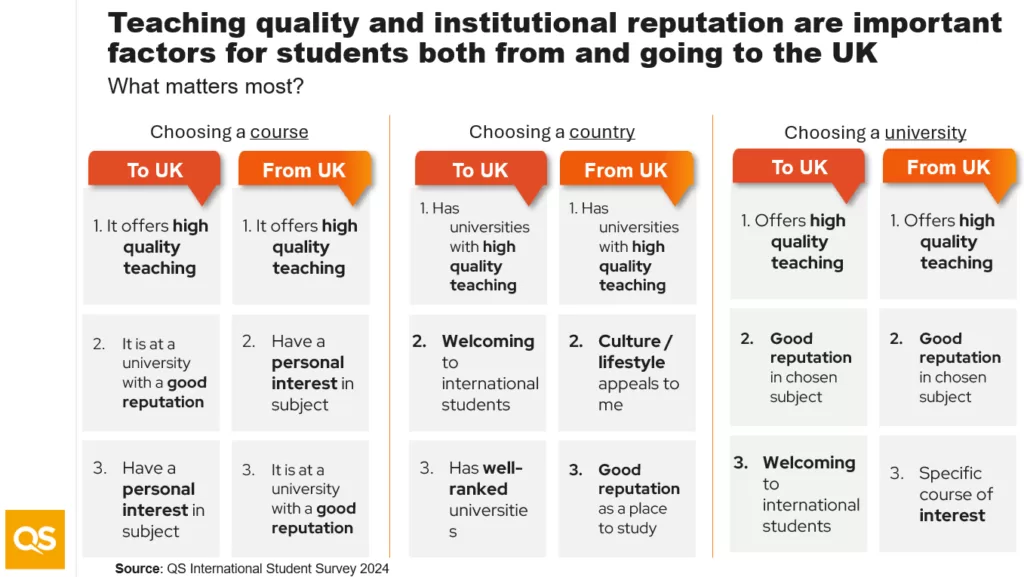
We are in the midst of another industrial innovation. With each previous wave, workers have required new skills – the current, AI-driven wave looks no different. Transformational skills adaptation is necessary to retain employment, and drive productivity and growth.
A recent Wall Street Journal article shows that nearly 40% of newly listed technology jobs in the information sector are AI related – for finance and professional services, that figure is nearly 30%. Rapid skill changes are affecting all industries. If universities are to play a central role in skilling the next generation, and reskilling current workers, they must adapt curricula, and quickly.
In Skills: The new battleground, QS experts Esteban Veintimilla and Kym Nguyen explored the changing labour market and why UK higher education institutions should be acting now. Below, we’re sharing some of the data from the webinar – get full details, more insights and our recommendations in the webinar recording.
Why do UK institutions need to act now?

We are already seeing rapid change, with brand new skills being sought by employers to take advantage of the potential of AI and new digital technologies.
60% of the global workforce needs to upskill, according to McKinsey data. Upskilling is also important to prospective students. QS International Student Survey data shows students are increasingly focused on graduate employment rate as an indicator of teaching quality. Whichever audience universities want to teach – lifelong learners, or undergraduates straight out of further education – their students are looking for programmes that will enhance their skills and prepare them for future career challenges.
Fortunately for students looking to study at UK universities, the country performs well in the QS World Future Skills Index, with graduates often having the skills employers are demanding.

Whether it’s green, AI or digital skills, the UK is well positioned to deliver the skills needed for future industries.
If that’s the case, what actions do UK universities need to take? Kym and Esteban were clear – leverage this strength and tell a compelling skills story.
Students want to know your skills story
“We are getting into a generation that’s really savvy. We need to tap into that savviness and show that we’re doing something about it.”
Esteban Veintimilla, Director of Partnerships, 1Mentor by QS
QS International Student Survey data is very informative. On average, students from the UK will apply to a larger number of universities than their international peers. Nearly 44% of students from the UK will apply to 4 or 5 universities, compared to 34% of international students looking to study in the UK. In a crowded market, a distinctive value proposition is key – it’s here that a skills story comes in.

Students are focused on skills, graduate outcomes, work placements and links to industry. Does your marketing and conversion activity work hard enough to show your alignment to industry and skill development? Beyond the institution-level narrative, does each of your subjects tell its own compelling skills story? Subject-specific reputation is the second most important factor when choosing a UK university.
When asked for the five most important considerations when choosing a course, 58% of students said, “It allows me to learn new skills,” while 52% said, “It improves my employment prospects”.
If you’re at a UK institution, the data shows that you’re likely to be delivering the skills employers require. The next step is telling your skills story in a way that resonates with students.
Which information sources do students use when researching institutions? Find out where you need to be telling your skills story using data from the QS International Student Survey 2024.
Read our reports and find the right channel mix for your institution, based on your target markets.



